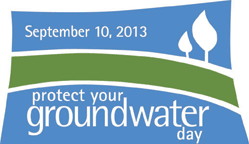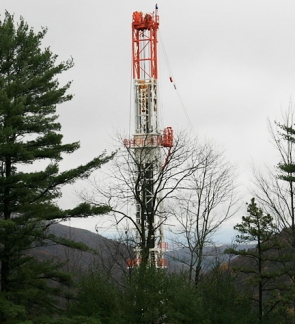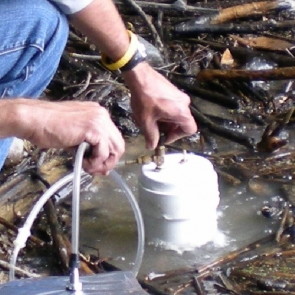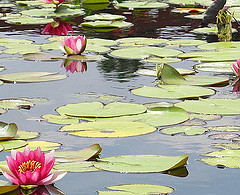Pipeline Panel Discussion Northeastern Pennsylvania
Wilkes University is hosting a panel discussion entitled “Gas Pipelines in Northeastern PA: Challenges and Solutions” on Thursday, 19 March between 7:30 P.M. – 9:30 P.M. The session will be held in Stark Learning Center, Room 101. The event is free.
The purpose of the session will be to offer the public a balanced perspective on natural gas pipeline development. Regulatory, planning, and landowner issues to protect PAs citizens and its environment while allowing for infrastructure development will be explored.
Panelists will include Mike Mara (UGI Energy Services), Dave Horn (LIUNA), Davitt Woodwell (Pennsylvania Environmental Council), Paul Metro (Pennsylvania Utility Commission), Josh Longmore (Luzerne County Conservation District), State Senator John T. Yudichak, Kenneth Klemow (Wilkes University), and Brian Oram (BF Environmental Consultants Inc).
The anticipated format will involve panelists responding to a series of prepared questions, followed up by moderated questions from the audience.
Ken
Directions to Campus
Campus Map (You want Stark Learning Center)
*****
Links
Online Training Courses Related to Natural Gas Development
Sustainability Training
Stream Restoration Courses
National Protect Your Groundwater Day
Penn State Extension and MWON Promote National Protect Your Groundwater Day—September 10, 2013
 Penn State Extension and the Master Well Owner Network are excited to announce a variety of educational efforts in recognition of the National Ground Water Association’s Protect Your Groundwater Day on September 10, 2013.
Penn State Extension and the Master Well Owner Network are excited to announce a variety of educational efforts in recognition of the National Ground Water Association’s Protect Your Groundwater Day on September 10, 2013.
A live webinar will be broadcast from 12:00 to 1:00 PM entitled Strategies to Protect Private Wells and Springs in Pennsylvania to highlight basic management strategies that homeowners can use to protect their drinking water. The webinar will also highlight numerous Penn State publications and web tools that are available to private water well and spring owners. The live webinar can be viewed at
< https://meeting.psu.edu/water1 >
During the evening of September 10, Penn State water resources educators will present a Safe Drinking Water Clinic in Ebensburg, PA for water well and spring owners. This will be the first in a series of Safe Drinking Water Clinics which will be offered around the state in the next 12 months.
More information about this online course can be found at:
< http://extension.psu.edu/water/mwon >
The Penn State Extension Water Resources team along with Master Well Owners provide education and assistance for thousands of private water well and spring owners across Pennsylvania each year. Tune in on September 10 to learn more about our resources and how to protect your groundwater!
To learn more about the National Ground Water Association and Protect Your Groundwater Day, visit their website at:
< http://www.ngwa.org/Events-Education/groundwater-day/ >
To celebrate National Protect Groundwater Day – The Carbon County Groundwater Guardians will be participating in the PA Energy Games in Hughesville, PA on September 7, 2013. We will have information on private wells, groundwater, alternative energy, conservation and Biomass. Stop by and Say Hello !
Support the Local Groundwater Education – Get Your Water Tested !
For information about Carbon County’s Groundwater Guardian activities, contact the Us.
Volunteer
We seek new people at all skill levels for a variety of programs. One thing that everyone can do is attend meetings to share ideas on improving CCGG, enabling us to better understand and address the concerns of well owners.
Everything we do began with an idea.
We realize your time is precious and the world is hectic. CCGG’s volunteers do only what they’re comfortable with. It can be a little or a lot.
For more information, please go to CCGG’s About Page or contact us.
Carbon County Groundwater Guardians is a 501(c)(3) IRS approved nonprofit, volunteer organization and your donation is tax deductible to the extent allowed by law.. Unsolicited donations are appreciated.
Help the Organization and Get Your Water Tested or Order the Private Well Owner Guide (proceeds benefit This Organization).
Webinar to examine stray shale-gas migration into groundwater
UNIVERSITY PARK, Pa. — Investigations into natural gas from shale development migrating into groundwater will be the focus of a free, Web-based seminar offered by Penn State Extension.
To be presented at 1 p.m. on March 21, “A Geochemical Context for Stray Gas Investigations in the Northern Appalachian Basin,” is part of a monthly series of one-hour webinars.
According to presenter Fred Baldassare, senior geoscientist with ECHELON Applied Geoscience Consulting, as shale gas exploration and development has increased over the past five years, stray gas migration in groundwater has become a hot topic. He will discuss the various sources of methane and the need to review each case individually to determine its origin.
“The occurrence of methane in aquifer systems represents a natural condition in many areas of the Appalachian Basin,” he said. “The origin can be the result of microbial and thermogenic processes that convert organic matter in the aquifer strata to methane, and to lower concentrations of ethane and heavier hydrocarbons in some areas of the basin.
“Or it can result from the progressive migration of hydrocarbon gas over geologic time from the source and/or reservoir to the aquifer.”
But in some instances, Baldassare pointed out, the stray gas that occurs in the aquifer and manifests in private water supplies can be the result of gas-well drilling.
“That happens where pressure combines with ineffective casing cement bonds to create pathways,” he said. “Alleged incidents of stray gas migration must be investigated at the site-specific level and must include isotope geochemistry to determine gas origin and diagnostic evidence to determine a mechanism of migration.”
Presented by Penn State Extension’s Marcellus Education Team, the monthly natural-gas webinars usually are offered from 1 p.m. to 2 p.m. on Thursdays. Upcoming webinars will cover the following topics:
–April 24: Utica Reservoirs — Mike Arthur, Penn State professor of geosciences and co-director of the Penn State Marcellus Center for Outreach and Research.
–May 16: Shale Energy Development’s Effect on the Posting, Bonding and Maintenance of Roads in Rural Pennsylvania — Mark Gaines, Pennsylvania Department of Transportation Bureau of Maintenance, Operations and Roadway Management, and Tim Ziegler, Penn State Larson Transportation Institute, Center for Dirt and Gravel Road Studies.
–June 20: Royalty Calculations for Natural Gas from Shale — Jim Ladlee, associate director, Penn State Marcellus Center for Outreach and Research.
Previous webinars, publications and information also are available on the Penn State Extension natural-gas website (http://extension.psu.edu/naturalgas), covering a variety of topics, such as Act 13; seismic testing; air pollution from gas development; water use and quality; zoning; gas-leasing considerations for landowners; gas pipelines and right-of-way issues; legal issues surrounding gas development; and the impact of Marcellus gas development on forestland.
Registration for this webinar is not necessary, and all are welcome to participate by logging in to https://meeting.psu.edu/pscems . For more information, contact Carol Loveland at 570-320-4429 or by email at cal24@psu.edu .
< http://news.psu.edu/story/267750/2013/03/08/webinar-examine-stray-shale-gas-migration-groundwater >
Carbon County Groundwater Guardians is a 501(c)(3) IRS approved nonprofit, volunteer organization and your donation is tax deductible to the extent allowed by law. Well water testing and educational program.
Key to cleaner environment may be right beneath our feet

Lin and his crew working in Penn State’s Living Filter, surveying the subsurface using an electromagnetic induction device.
UNIVERSITY PARK, Pa. — While many people recognize that clean water and air are signs of a healthy ecosystem, most do not realize that a critical part of the environment is right beneath their feet, according to a Penn State hydrologist.
The ground plays an important role in maintaining a clean environment by serving as a natural water filtration and purification system, said Henry Lin, professor of hydropedology and soil hydrology. Understanding the components that make up this integral part of the ecosystem can lead to better groundwater management and smarter environmental policy.
“We look at nature and we see all the beauty and all the prosperity around us,” said Lin, “But most people don’t know or tend to forget that the key to sustainability is right underground.”
Lin, who reports on his research today (Feb. 17) at the annual meeting of the American Association for the Advancement of Science in Boston, said that the earth’s outer layer — from the top vegetation canopy to the strata of soils and layers of underground material — helps soak up and purify water by extracting excess nutrients, heavy metals and other impurities. The ground can also act as a storage container for freshwater.
About 60 percent of the world’s annual precipitation ends up in this zone, Lin said.
“In fact, there is more water under the ground than there is in the so-called ‘blue waters,’ such as lakes and rivers,” said Lin.
Besides using freshwater for drinking, people use large amounts of water to irrigate agricultural fields and as part of industrial operations. The researcher said that just as a global green revolution raised awareness about food security, a “blue revolution” may lead to efforts to water security with clean, safe water supply around the globe.
“Without water there is no life,” Lin said. “Without groundwater, there is no clean water.”
Lin said that the system is currently under threat from poor land management practices that fail to consider how ground water is affected by land uses, such as new building projects, underground storage and agricultural operations. Planners should consider, for example, how the ground and plants in an area can affect water run-off. In some cases, not taking the ground and underground features of an area into consideration can lead to flooding, or to the addition of impurities into drinking water supplies.
Besides reaching out to managers and planners, Lin said that the general public also must become more aware of groundwater management issues.
“In a lot of cases, for the general public and even people from government agencies and funding agencies, it’s out of sight, out of mind,” Lin said. “But, beneath the surface lies the foundation of our sustainability.”
Registration open for May 8 Pa. Groundwater Symposium
UNIVERSITY PARK, Pa. — In observance of National Drinking Water Week, Penn State Extension and the state Department of Environmental Protection are collaborating with numerous other sponsors to offer the 2013 Pennsylvania Groundwater Symposium.
Scheduled for May 8 at Penn State’s University Park campus, registration for the event now is open at this website and is limited to the first 150 registrants.
“Emerging Issues in a Changing Landscape” is the theme of the symposium, which will provide a forum for researchers, students, professionals and educators working in the groundwater field to exchange information and promote protection of groundwater resources throughout the state.
“Millions of Pennsylvanians rely on groundwater for their drinking water,” said symposium coordinator Bryan Swistock, extension water resources specialist. “National Drinking Water Week provides the perfect opportunity for us to convene a symposium of groundwater experts who can share information to better understand and protect this vital natural resource.”
Morning and afternoon keynote speakers will address important water issues in Pennsylvania, including emerging contaminants and the potential impacts of natural-gas development.
The symposium also will feature several concurrent sessions with presentations on groundwater budgets and yields, tools for describing groundwater during natural-gas exploration, and broader studies characterizing groundwater and water wells.
A lengthy afternoon break and poster session will allow attendees to network while viewing numerous poster presentations. Abstracts for additional poster presentations will be accepted through April 3 on the registration website.
A nominal registration fee of $30 for the symposium is made possible by funding support from Penn State Extension and its Master Well Owner Network, the Pennsylvania Department of Environmental Protection, the Mid-Atlantic Water Program, the Pennsylvania Ground Water Association and the Penn State Water Resources Research Center.
Additional partnering agencies include the U.S. Geological Survey and the Susquehanna River Basin Commission.
For more information, contact Swistock at 814-863-0194 or by email at brs@psu.edu.
news.psu.edu/story/142152/2013/02/07/registration-open-may-8-pa-groundwater-symposium
Land-use webinar offered by Penn State Extension on Feb. 20
news.psu.edu/story/264504/2013/02/18/land-use-webinar-offered-penn-state-extension-feb-20
UNIVERSITY PARK — A Web-based seminar focusing on limitations in municipal land-use authority will be offered by Penn State Extension at noon and 7 p.m. Feb. 20.
“How Pre-emption of Zoning and Other Local Controls Impacts Planning” will provide participants with an appreciation of how state laws can impact local land use.
In the one-hour session, attorney Charles Courtney, of McNees Wallace & Nurick LLC, will explain why planners, elected officials and other interested parties should understand how certain statutes can limit municipal land-use authority.
“Although municipalities have broad land-use authority under the Pennsylvania Municipalities Planning Code, various commonwealth statutes limit that authority in specific areas — for example the Oil and Gas Act and the Nutrient Management Act,” he said.
“Under many of these statutes, the municipality is forbidden to impose any requirement that is inconsistent with the state statute. This pre-emption can be expressly written in the statute, or it can be implied.”
Understanding the limitations in local land-use authority will help municipal officials to be better planners, Courtney noted. The webinar, which will be moderated by Neal Fogle, Penn State Extension educator based in Northumberland County, will provide that insight.
The Feb. 20 presentation is part of Extension’s Land Use Decision-Making Monthly Webinar Series, which provides information about current planning issues, land use planning tools and techniques, local regulation and community engagement. The sessions are designed to help planners, elected officials and citizens better engage in land use decision-making processes.
Upcoming webinars will cover the following topics:
–March 20: “Renewable Energy Implementation and Land Use Regulations — Is There Conflict?”
–April 17: “Developing More Effective Citizen Engagement: A How-To Guide for Community Leaders”
–May 15: “Low Impact Development and Smart Growth: How Are They Best Integrated and Utilized in Our Communities?”
A webinar held Jan. 16, “Planning in Pennsylvania: Land Use, Communities and Beyond,” was recorded and is available to registered participants for viewing.
Registration cost for the entire webinar series is $25, and registrants can watch as few or as many webinars as they like. For more information, contact Jeff Himes, extension educator based in Tioga County, at 570-724-9120 or jhimes@psu.edu, or visit http://agsci.psu.edu/land-use-webinar.
Contacts:
Chuck Gill
cdg5@psu.edu
Work Phone:
814-863-2713
Webinar to highlight best shale gas extraction conservation practices

Shale-gas development in Pennsylvania forestlands has raised concerns about whether it can be done with minimal impact to the environment.
UNIVERSITY PARK, Pa. — The best conservation practices for shale-gas extraction will be the focus of a free, Web-based seminar offered by Penn State Extension at 1 p.m. on Feb. 21.
The presentation, “Evaluating the Scientific Support of Conservation Best Management Practices for Shale Gas Extraction in the Appalachian Basin,” is part of a monthly series of one-hour webinars.
This month’s webinar focuses on research done by the Nature Conservancy. That organization’s shale-gas specialists, Scott Bearer and Tamara Gagnolet, will discuss their analysis of practices that could benefit the environment.
“Shale-gas development in Pennsylvania forestlands has raised a broad range of concerns about whether it can be done with minimal impact to the environment and still allow the forests to provide outdoor enjoyment for the public,” Bearer said.
“During the webinar, we will provide an overview of our assessment of various conservation practices related to shale-gas extraction. We also will discuss which best-management practices are most supported by the science and therefore should be considered when developing a conservation-minded shale gas lease.”
Presented by Penn State Extension’s Marcellus Education Team, most of the monthly webinars will be offered from 1 p.m. to 2 p.m. on Thursdays. Upcoming planned topics and presenters include:
— March 21: Stray Gas Migration — Fred Baldassare, senior geoscientist with Echelon Applied Geoscience Consulting.
— April 24: Utica Reservoirs — Mike Arthur, Penn State professor of geosciences and co-chair of the Penn State Marcellus Center for Outreach and Research.
–May 16: Shale Energy Development’s Effect on the Posting, Bonding and Maintenance of Roads in Rural Pennsylvania — Mark Gaines, Pennsylvania Department of Transportation Bureau of Maintenance, Operations and Roadway Management, and Tim Ziegler, Penn State Larson Transportation Institute, Center for Dirt and Gravel Road Studies.
–June 20: Royalty Calculations for Natural Gas from Shale — Jim Ladlee, associate director, Penn State Marcellus Center for Outreach and Research.
Previous webinars, publications and information also are available on the Penn State Extension natural-gas website (http://extension.psu.edu/naturalgas), covering a variety of topics, such as Act 13; seismic testing; air pollution from gas development; water use and quality; zoning; gas-leasing considerations for landowners; gas pipelines and right-of-way issues; legal issues surrounding gas development; and the impact of Marcellus gas development on forestland.
Registration for this webinar is not necessary, and all are welcome to participate by logging in to https://meeting.psu.edu/pscems . For more information, contact Carol Loveland at 570-320-4429 or by email at cal24@psu.edu.
2013 Pennsylvania Groundwater Symposium
In celebration of National Drinking Water Week, Penn State Extension and the Pennsylvania Department of Environmental Protection along with numerous other sponsors invite you to attend the 2013 Pennsylvania Groundwater Symposium on Wednesday, May 8th at Penn State University in University Park, PA.
The Symposium theme: Emerging Issues in a Changing Landscape will provide a forum for researchers, students, professionals and educators working in the groundwater field to exchange information and promote protection of groundwater resources throughout the state. Morning and afternoon keynote speakers will address important water issues in Pennsylvania including emerging contaminants and groundwater issues related to Marcellus Shale gas exploration.
The symposium will also feature several concurrent sessions with contributed presentations on groundwater budgets, tools for describing groundwater during natural gas exploration, and broader studies characterizing groundwater and water wells.
A lengthy afternoon break and poster session will allow attendees to network while viewing numerous contributed poster presentations. Abstracts for additional poster presentations will be accepted through April 3, 2013 on the registration website.
For more information and to register please use this link: http://agsci.psu.edu/pa-water-symposium
Online survey to gauge opinions about Pennsylvania’s water resources
live.psu.edu/story/63898#nw69
Friday, January 25, 2013
UNIVERSITY PARK, Pa. — Pennsylvanians can express their opinions about the state’s water resources by filling out a brief online survey conducted by Penn State’s College of Agricultural Sciences and several partner agencies.
Researchers are interested in learning what residents believe about the current status of the Keystone State’s water and how they think funding and other resources should be prioritized to best protect and manage water resources.
The objective is to collect opinions from thousands of Pennsylvania residents, according to Bryan Swistock, Penn State Extension water resources specialist, who is coordinating the research.
He noted that the informal survey is intended as a public engagement project and does not necessarily represent a statistical sampling of opinions.
The five-minute survey can be completed at https://www.surveymonkey.com/s/PaWater.
“This is your chance to be heard on the value and importance of water resources in Pennsylvania,” Swistock said. “We really need to learn more about what water resources issues are most important to the people of Pennsylvania so we can provide this information to both policymakers and those who fund water resources research.”
The survey, which will close Feb. 28, is open to Pennsylvania residents who are at least 18 years of age. A summary of results will be published this spring on the Pennsylvania Water Resources Research Center website, http://www.pawatercenter.psu.edu.
This survey is funded by the Pennsylvania Water Resources Research Center and Sea Grant Pennsylvania in partnership with Penn State Extension and the Pennsylvania American Water Resources Association.
Other Surveys
PA Residents – Marcellus Shale Concerns
Well Owners from Other States – Concerns Related to Shale Development
REMINDER – Pennsylvania Private Well Owner Drinking Water webinar January 30 on baseline water testing for gas drilling
Bryan Swistock <brs@psu.edu>
The next webinar in our Water Resources series will be Wednesday, January 30, 2013 from noon to 1 PM (EST). More details below. Hope you can join us!
When: Wednesday January 30, 2013 from noon to 1 PM
Topic: A Study of Pre-Drilling Groundwater Quality in 700 Water Wells and Springs in North Central Pennsylvania
Speaker: Jim Clark, Water Resources Extension Educator, Penn State Extension, McKean County
Where: The live webinar can be viewed at https://meeting.psu.edu/water1
Webinar Description:
Jim Clark, a Penn State Extension Water Resources Extension Educator based in McKean County, PA, will discuss the results of a study of approximately 700 private drinking water supplies covering eight counties in North Central Pennsylvania. Clark has been a Penn State Extension Educator for 24 years and has completed private water supply testing projects in McKean County in 2006 and Cameron County in 2011. This current water testing effort was administered by the Headwaters Resource Conservation and Development Council and the Clearfield County Conservation District. A grant from the Colcum Foundation funded the project. The Penn State Extension Water Resources Team partnered to offer a Water Test Report Interpretation Workshop in each of the eight participating counties and offered individual consultations for many of the private water supply owners who participated in the study. The combined workshop evaluation results and the results for the 21 parameters tested on the private water supplies will be shared and discussed.
About the Presenter:
Jim Clark is a native of Elmira, New York. He holds an Associate Degree in Animal Husbandry from Alfred State College and a Bachelor of Science and Masters in Arts and Teaching from Cornell University. He has been an Extension Educator with Penn State Extension since July of 1989, based in McKean County, Pennsylvania. He is Co Chair of the Penn State Water Resources Team.”
How to Participate
The live webinar will occur from noon to 1 PM and is accessible at: https://meeting.psu.edu/water1
You can access this webinar simply by signing in as a “guest”.
Taped versions of each webinar in the series are available at: http://extension.psu.edu/water/webinar-series/past-webinars
If you have not registered for past water webinars, please visit the following website to register so we can keep you updated about future webinar offerings: http://extension.psu.edu/water/webinar-series/schedule/registration.
If this will be your first webinar, you may want to test your
computer and internet connection for compatibility at:
https://meeting.psu.edu/common/help/en/support/meeting_test.htm
Additional Upcoming Webinars
Additional webinars on various water resources topics will be offered each month – generally on the last Wednesday of the month. A full schedule of webinars for the next 12 months can be found at: http://extension.psu.edu/water/webinar-series/schedule.
The February webinar will be offered on 2/27/13 at noon on Innovations in Youth Water Education by Jennifer Fetter, Water Resources Educator, Penn State Extension, Dauphin County.
Please pass this along to anyone that might be interested in attending these webinars.
Other Training and Presentations on Common Water Quality Problems and baseline water testing.




